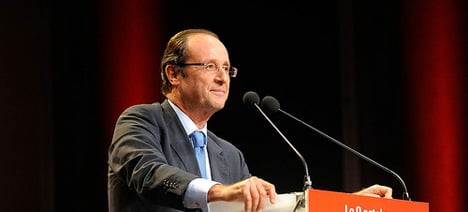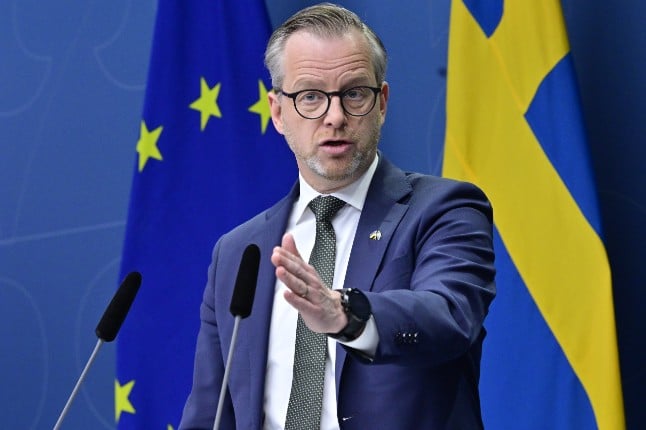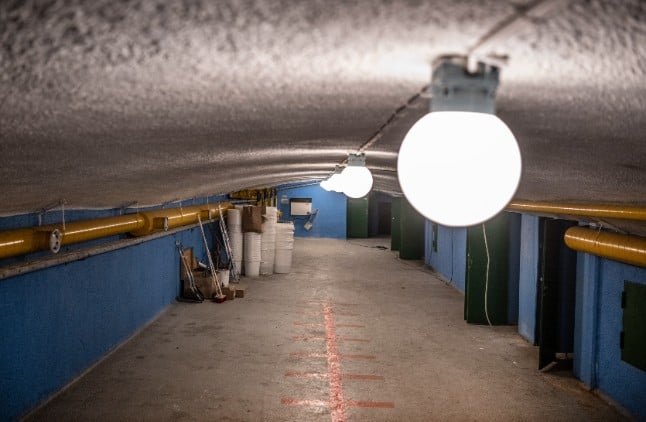The 2013 budget adopted by President Francois Hollande's cabinet commits the ruling Socialists to an austerity programme at a time when the economy is teetering on the brink of recession.
Hollande defended measures that included a 75% top tax rate as fair and unavoidable if France is to get its finances under control, meet EU deficit targets deemed essential to save the euro and kickstart the faltering economy.
"It's a combative budget aimed at cutting the deficit, improving our economic performance and restoring fairness," Hollande told his ministers, stressing that "the richest households" and the biggest companies would bear the brunt of the pain.
But opposition critics derided a budget that will take billions out of the economy at a time when unemployment is close to record highs and contested government claims that only the richest ten percent would pay higher taxes.
"France is headed into the wall," warned Bruno Le Maire of the main opposition UMP party. Former budget minister Valerie Pecresse claimed: "This budget means 100% of French workers will be paying higher taxes."
The budget breakdown indicated that France needs to make €36.9 billion ($48 billion) in savings if it is to meet its target of reducing its budget deficit from an anticipated level of 4.5% of GDP this year to the EU ceiling of three percent in 2013.
Economists are sceptical about the government's ability to meet the deficit target and have warned that the dampening effect of cuts and tax hikes will make it difficult to attain the growth (0.8% for 2013, rising to 2.0% in 2014) on which the budget figures are based.
The economy is currently flat-lining and latest data point to that trend continuing into the winter.
"A 1.5% reduction of the deficit represents a considerable effort at the best of times. In a period of zero growth it would be exceptional," said Elie Cohen, director of research at the government-financed CNRS think tank.
Eric Heyer, of the Economic Conjuncture Observatory, added bluntly: "It has never been done before."
— Debt at 'critical' level —
Friday's budget was the first since Hollande was elected president in June on a pledge to put economic revival at the top of the national and European agendas.
As the reality of the grim economic situation he inherited has sunk in, Hollande has seen his approval ratings freefall and he is now on the verge of becoming the most unpopular French leader in living memory.
The total of €36.9 billion of savings includes €12.5 billion of cuts — €2.5 billion on health spending and €10 billion across other government departments.
A total of €10 billion will come from extra taxes on individuals and a further 10 billion from new taxes on businesses. These are in addition to €4.4 billion worth of new taxes announced in July.
Prime Minister Jean-Marc Ayrault claimed the cuts and tax hikes would ensure France could continue to finance its high level of debt at historically low interest rates, unlike Spain and Italy.
Figures released Friday revealed that France's national debt had risen to 91% of GDP, a level described as "critical" and a threat to growth by Finance Minister Pierre Moscovici.
Ayrault added: "We have to break with this spiral of ever increasing debt. If we don't say stop now, our taxpayers will just go on paying indefinitely purely to meet the interest payments."
The much-trumpeted 75% tax rate, which economists say will raise only marginal amounts, will apply to individuals with income above one million euros per year.
Ayrault has claimed that only one in ten French taxpayers will pay more as a result of Friday's changes and he said increased taxes on businesses will not affect small and medium-sized enterprises that are crucial for job creation in the first stages of an economic recovery.
"The effort we are demanding from our biggest companies is reasonable and fair," Ayrault said. "Not only have we spared small companies, we are going to help them create the jobs the country needs."




 Please whitelist us to continue reading.
Please whitelist us to continue reading.
Member comments